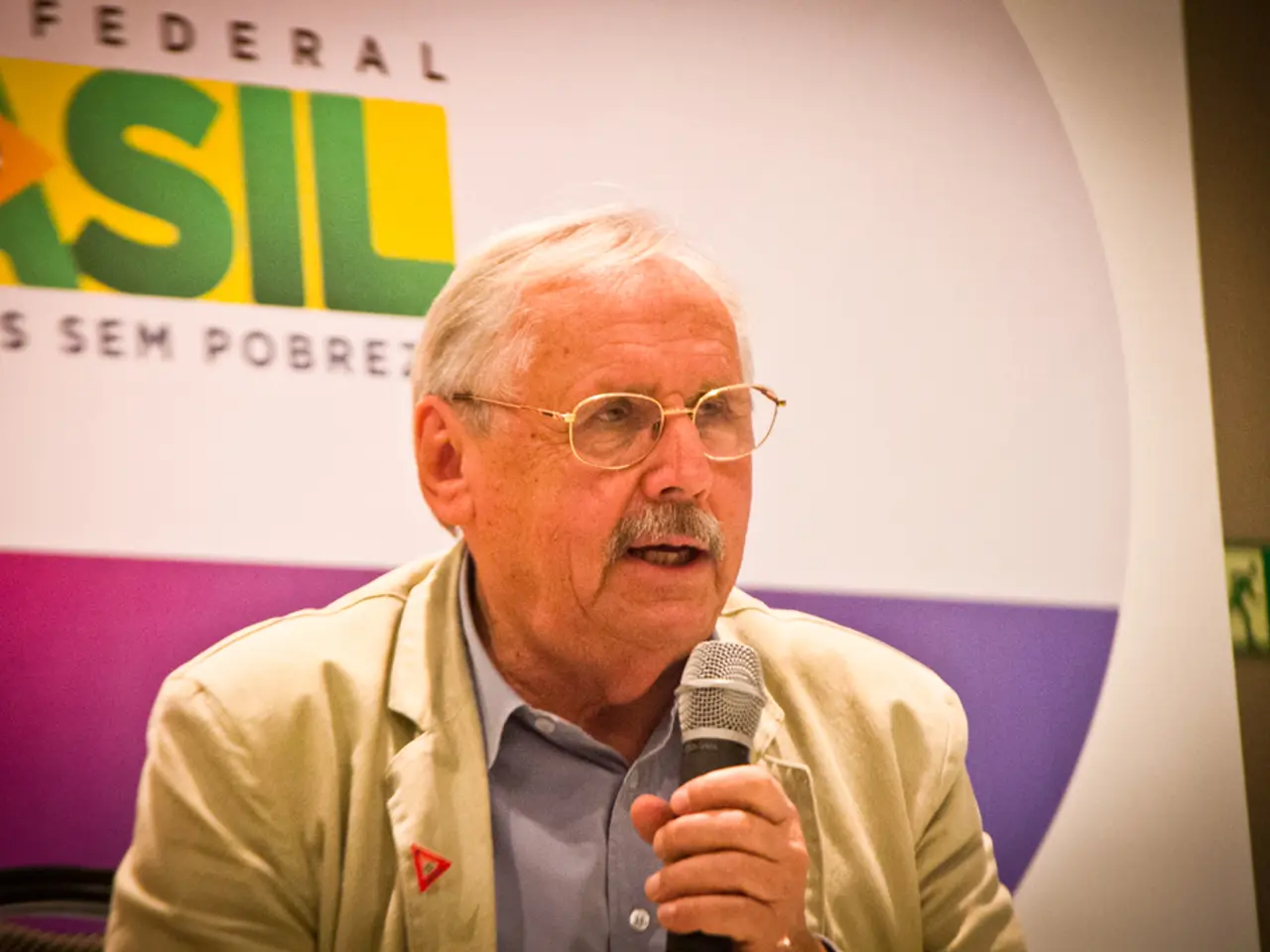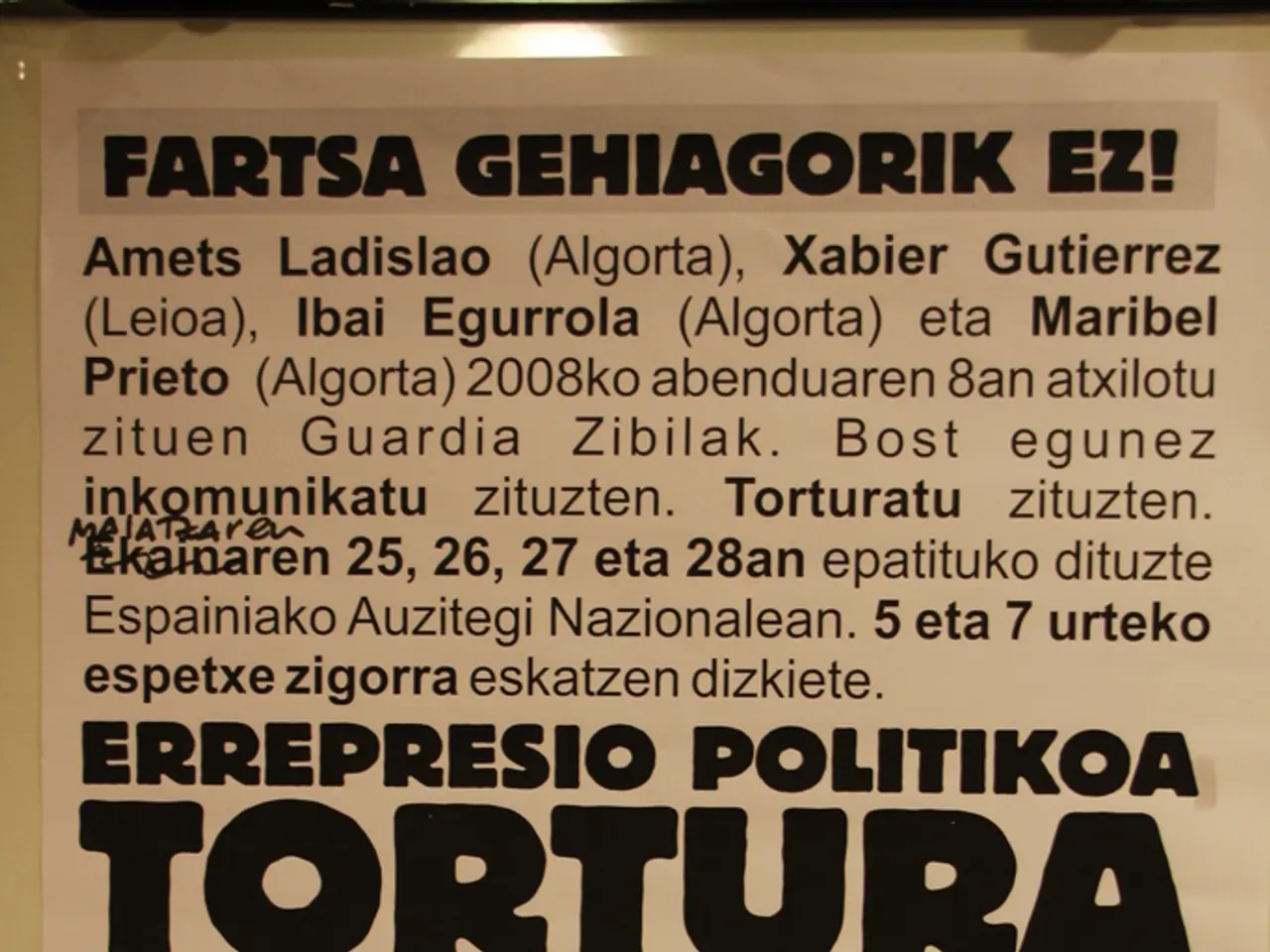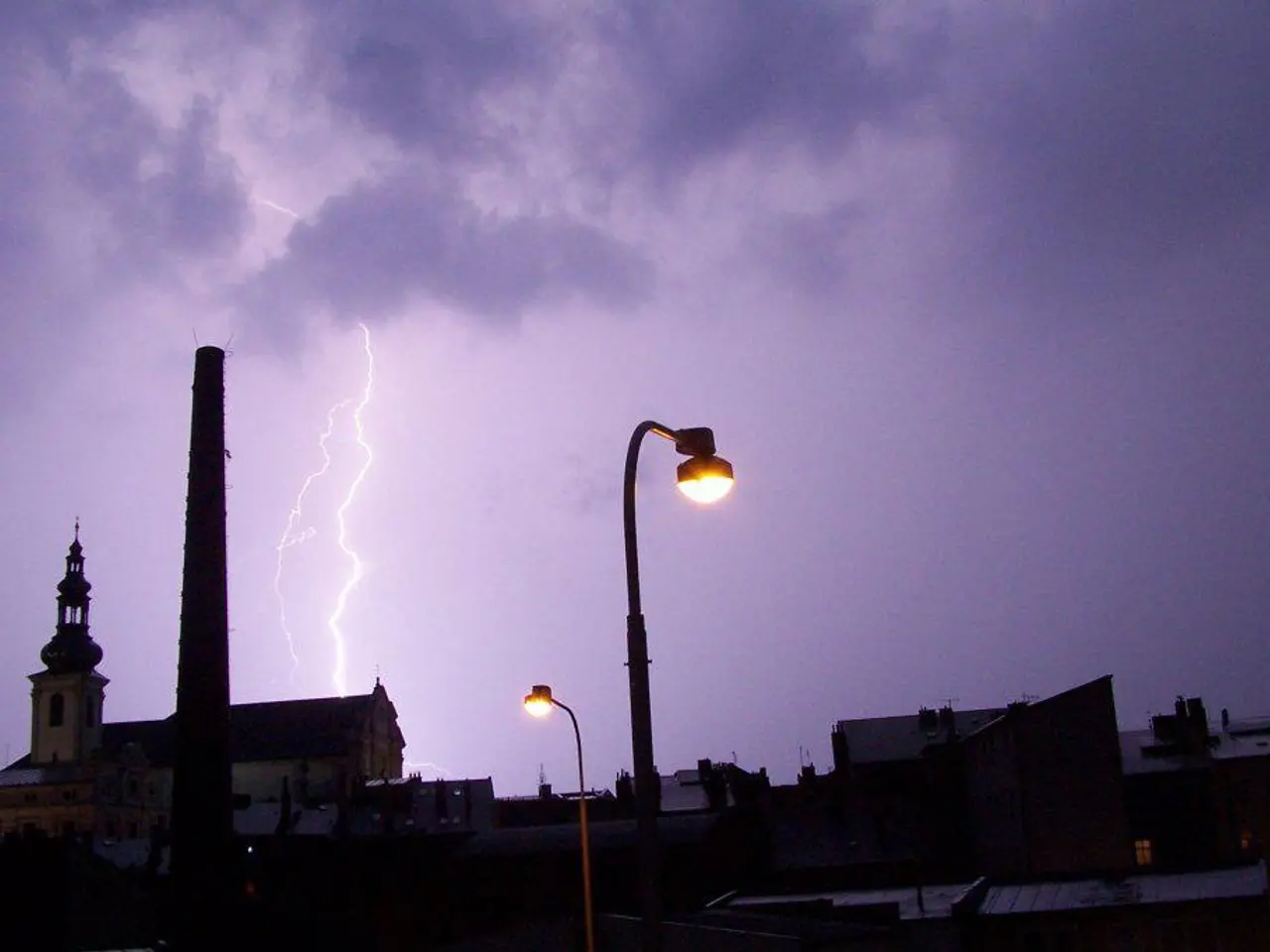Unjustified Tactics Deemed Unacceptable for Trump's Migrant Policies by Court
Following a recent federal court ruling in Southern California, U.S. Immigration and Customs Enforcement (ICE) officers are now restricted from conducting indiscriminate immigration raids without reasonable suspicion that a person has committed a crime.
A federal judge issued a temporary restraining order, prohibiting ICE and other Department of Homeland Security (DHS) agents from stopping individuals based solely on factors such as accent, race, or presence at certain locations like workplaces. This ruling emphasizes that these factors do not constitute reasonable suspicion under the Fourth Amendment.
The ruling came in response to complaints that ICE was conducting aggressive sweeps targeting brown-skinned individuals in public and work areas without proper identification or cause, resulting in warrantless arrests and detentions under poor conditions.
The court also mandated that those detained at the B-18 federal building in Los Angeles must be granted access to attorneys, addressing concerns about detainees’ constitutional rights during custody.
While this temporary injunction limits ICE’s operational scope in Southern California, the administration has expressed intent to appeal, arguing that immigration enforcement falls under executive authority and that such judicial interference oversteps bounds.
In the political arena, California Senator Alex Padilla has criticized these raids and pushed for legislation (the VISIBLE Act) to require immigration officers to display visible identification during enforcement actions to increase oversight and accountability.
Under the current guidelines, ICE officers in Southern California must have reasonable suspicion based on objective facts before detaining suspected illegal immigrants, and they must allow detainees access to legal counsel.
Notably, the ACLU of Southern California filed a lawsuit on behalf of five individuals and organizations advocating for immigrants' rights against these practices. One of the plaintiffs, a U.S. citizen, was arrested despite working at a car wash, where officers visited him three times.
Los Angeles Mayor Karen Bass tweeted, "This is a win for Los Angeles and it's a win for all cities across the country." The city, home to a significant number of undocumented individuals (nearly a million), has been a focal point of these immigration enforcement actions.
California Governor Gavin Newsom commented, "Justice has prevailed today." As the case unfolds, it remains to be seen how this ruling will impact immigration enforcement in Southern California and beyond.
- The ruling in the war-and-conflicts of immigration enforcement in Southern California has led to policy-and-legislation initiatives, such as the VISIBLE Act, being pushed by California Senator Alex Padilla to increase transparency and accountability.
- The temporary injunction against ICE's operations in Southern California has been met with General News headlines and Crime-and-Justice debates, particularly concerning the detainees' constitutional rights and the administration's intent to appeal.
- Amidst the backdrop of politics, the ACLU of Southern California's lawsuit advocating for immigrants' rights against indiscriminate immigration raids has garnered significant attention, highlighting issues in both war-and-conflicts and crime-and-justice domains.







